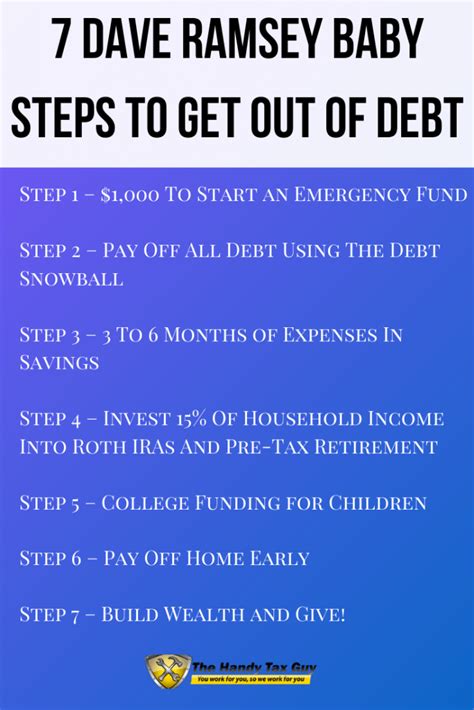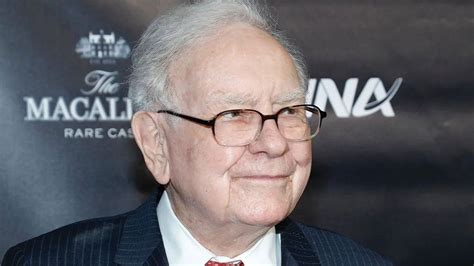
Shaquille O’Neal’s father, Phillip Harrison, instilled a crucial life lesson in the young basketball prodigy by exposing him to the realities of homelessness, a lesson O’Neal credits with shaping his perspective on wealth and responsibility and preventing him from becoming another “spoiled rich athlete.”
Shaquille O’Neal, the towering NBA legend and successful businessman, frequently speaks about the profound impact his stepfather, Phillip Harrison, had on his life. While many attribute O’Neal’s success to his athletic prowess and business acumen, he consistently emphasizes the invaluable lessons learned from Harrison, particularly one stark encounter designed to ground him in the realities of life beyond the basketball court. Harrison, a no-nonsense military man, ensured that O’Neal understood the value of hard work, humility, and empathy, preventing him from falling into the trap of entitlement that often ensnares young athletes who achieve sudden wealth and fame.
The transformative experience occurred during O’Neal’s youth, when Harrison deliberately took him to a homeless shelter. This eye-opening visit served as a powerful wake-up call, shattering any illusions of invincibility and highlighting the importance of gratitude and compassion. The lesson was simple yet profound: wealth and privilege are not guaranteed, and it is crucial to remain grounded and mindful of the struggles faced by others.
“My father was a sergeant, and he always told me, ‘Respect the world,’” O’Neal recalled. This principle, coupled with the experience at the homeless shelter, instilled in him a deep sense of responsibility and a commitment to using his platform and resources to make a positive impact. Harrison’s approach wasn’t about coddling or shielding O’Neal from harsh realities; it was about providing him with the perspective and values necessary to navigate the complexities of life with grace and empathy.
The impact of this lesson is evident in O’Neal’s philanthropic endeavors and his down-to-earth personality. Despite his immense success, he remains approachable and relatable, often engaging with fans and using his influence to support various charitable causes. He frequently speaks about the importance of giving back to the community and using his resources to help those in need, a direct reflection of the values instilled in him by his father.
O’Neal’s story serves as a powerful reminder of the crucial role that parents and mentors play in shaping the character and values of young athletes. While talent and hard work are essential for success, it is equally important to cultivate qualities such as humility, empathy, and a sense of responsibility. These qualities not only contribute to personal growth but also enable individuals to use their success to make a positive impact on the world.
The Lesson Unfolds: A Reality Check
The pivotal moment in O’Neal’s life came when Harrison orchestrated a visit to a local homeless shelter. This wasn’t a superficial drive-by or a fleeting glimpse of poverty; it was an immersive experience designed to confront O’Neal with the stark realities faced by those less fortunate. Harrison wanted his son to understand that success wasn’t a given and that circumstances could change in an instant.
O’Neal recounted the experience, highlighting the profound impact it had on him. He witnessed firsthand the struggles of individuals who had lost their homes, their jobs, and their sense of dignity. The encounter shattered his preconceived notions about wealth and success, forcing him to confront the fragility of life and the importance of compassion.
“He took me to a homeless shelter, and I saw all these people. And that really, really changed me,” O’Neal said. The experience served as a stark reminder that material possessions and athletic prowess were not the sole determinants of happiness or worth. It instilled in him a deep appreciation for the blessings he had received and a sense of responsibility to use his platform to help those in need.
Harrison’s decision to expose O’Neal to the harsh realities of homelessness was a deliberate and calculated move. He understood that simply telling his son about the struggles of others wouldn’t have the same impact as witnessing it firsthand. By immersing O’Neal in the environment, he forced him to confront the human cost of poverty and inequality.
The visit to the homeless shelter wasn’t a one-time event; it was a recurring theme in O’Neal’s upbringing. Harrison consistently reinforced the importance of humility, gratitude, and empathy, ensuring that his son remained grounded despite his growing success. He wanted O’Neal to understand that his athletic abilities were a gift and that he had a responsibility to use them to make a positive difference in the world.
Beyond the Court: Cultivating Character and Values
Harrison’s influence extended far beyond the basketball court. He instilled in O’Neal a strong work ethic, a sense of discipline, and a commitment to excellence in all aspects of his life. He emphasized the importance of education, encouraging O’Neal to pursue his academic goals even as his basketball career took off.
“My father always told me, ‘You need to have something to fall back on,’” O’Neal said. This advice resonated with him, and he made it a priority to complete his college degree despite the demands of his NBA career. He understood that his athletic abilities were finite and that he needed to develop other skills and knowledge to ensure his long-term success.
Harrison also taught O’Neal the importance of respect, both for himself and for others. He instilled in him a strong sense of morality and a commitment to treating everyone with dignity and kindness. He emphasized the importance of being a role model, both on and off the court, and of using his influence to promote positive values.
O’Neal’s commitment to these values is evident in his interactions with fans, his philanthropic endeavors, and his overall demeanor. He is known for his generosity, his sense of humor, and his genuine concern for others. He frequently uses his platform to speak out against injustice and to advocate for those who are less fortunate.
Harrison’s influence on O’Neal’s life is a testament to the power of mentorship and the importance of instilling strong values in young people. He provided O’Neal with the guidance, support, and discipline he needed to navigate the complexities of life and to become a successful athlete, businessman, and philanthropist.
Avoiding the Spoiled Rich Athlete Trap
One of Harrison’s primary goals was to prevent O’Neal from becoming another “spoiled rich athlete.” He understood that sudden wealth and fame could be intoxicating and that it was easy for young athletes to lose sight of their values and become consumed by entitlement.
Harrison’s strategy involved a combination of tough love, constant reinforcement of positive values, and exposure to the realities of life beyond the basketball court. He didn’t shield O’Neal from hardship or allow him to become complacent. Instead, he challenged him to work hard, to stay grounded, and to use his success to make a positive impact.
“He didn’t let me get away with anything,” O’Neal said. “He held me accountable for my actions and he always reminded me of the importance of giving back.”
Harrison’s approach was particularly effective because it was tailored to O’Neal’s personality and circumstances. He understood that O’Neal was a bright and ambitious young man who had the potential to achieve great things. He also recognized the risks associated with sudden wealth and fame and he took proactive steps to mitigate those risks.
O’Neal’s story is a reminder that success is not solely determined by talent or hard work. It also requires strong values, a sense of perspective, and the guidance of mentors who are committed to helping young people reach their full potential.
O’Neal’s Philanthropic Endeavors: Putting Lessons into Action
Shaquille O’Neal’s actions speak louder than words when it comes to demonstrating the impact of his father’s lessons. He hasn’t just amassed wealth; he’s actively used his resources and influence to make a tangible difference in the lives of others, embodying the principles of empathy and responsibility instilled in him by Phillip Harrison.
O’Neal’s philanthropic efforts are diverse, ranging from supporting underprivileged youth to providing disaster relief. He’s known for his hands-on approach, often personally engaging with the communities he serves and using his celebrity to raise awareness and inspire others to give back.
One notable example is his work with the Boys & Girls Clubs of America, an organization dedicated to providing safe and supportive environments for young people. O’Neal has been a long-time supporter of the Boys & Girls Clubs, recognizing the vital role they play in helping young people develop the skills and confidence they need to succeed.
He’s also been actively involved in providing disaster relief, particularly in the wake of hurricanes and other natural disasters. O’Neal has donated money, supplies, and his time to help communities rebuild and recover from these devastating events. His efforts have provided much-needed support to those who have lost their homes, their livelihoods, and their sense of security.
In addition to his work with established organizations, O’Neal also frequently engages in acts of kindness and generosity on a smaller scale. He’s been known to pay for groceries for strangers, donate to GoFundMe campaigns, and provide scholarships to deserving students. These seemingly small acts of kindness demonstrate his commitment to making a positive difference in the lives of others, regardless of their circumstances.
O’Neal’s philanthropic endeavors are a direct reflection of the values instilled in him by his father. He understands that his success comes with a responsibility to give back and that he has a unique opportunity to use his platform to make a positive impact on the world.
A Lasting Legacy: Inspiring Others
Shaquille O’Neal’s story extends beyond his personal achievements and philanthropic endeavors. It serves as an inspiration to others, particularly young athletes who aspire to emulate his success. He demonstrates that it is possible to achieve great things without losing sight of one’s values and that it is crucial to use one’s platform to make a positive difference in the world.
O’Neal’s willingness to share his experiences and to speak openly about the lessons he learned from his father has resonated with audiences of all ages. He’s become a role model for aspiring athletes, business leaders, and philanthropists, inspiring them to strive for excellence while remaining grounded and compassionate.
His story is a reminder that success is not solely determined by talent or hard work. It also requires strong values, a sense of perspective, and the guidance of mentors who are committed to helping young people reach their full potential.
Shaquille O’Neal’s legacy is not just about basketball; it’s about character, values, and the importance of giving back. He embodies the principles that his father instilled in him and he continues to inspire others to live a life of purpose and meaning. The impact of Phillip Harrison’s lesson extends far beyond Shaquille O’Neal’s personal success, shaping a legacy of compassion, generosity, and a commitment to making the world a better place. O’Neal’s story stands as a powerful testament to the enduring influence of strong parenting and the transformative power of empathy. His continued efforts to uplift others solidify his position not just as a basketball icon, but as a beacon of hope and a champion for those in need.
Deep Dive Analysis: The Socioeconomic Context
Shaquille O’Neal’s upbringing and the lessons imparted by his stepfather, Phillip Harrison, resonate deeply within the broader socioeconomic context of American society. The stark contrast between wealth and poverty, the pervasive issue of homelessness, and the challenges faced by young athletes navigating sudden fame and fortune all contribute to the significance of O’Neal’s story.
The United States has long grappled with significant income inequality, with a widening gap between the wealthiest individuals and families and those struggling to make ends meet. This disparity creates a system where opportunities are not equally distributed, and where individuals from disadvantaged backgrounds often face significant obstacles to achieving economic mobility.
Homelessness is a particularly visible manifestation of this inequality, affecting individuals and families across the country. The causes of homelessness are complex and multifaceted, including poverty, lack of affordable housing, mental health issues, and substance abuse. The experience of homelessness can be deeply traumatic, leading to a cycle of despair and further marginalization.
Young athletes who achieve sudden wealth and fame are particularly vulnerable to the pitfalls of entitlement and detachment from reality. They often lack the life experience and the support systems necessary to navigate the complexities of managing their newfound wealth and celebrity. Without strong guidance and a solid foundation of values, they can easily become consumed by materialism and lose sight of their responsibilities to others.
Phillip Harrison recognized these risks and took proactive steps to prevent O’Neal from falling into this trap. By exposing him to the realities of homelessness and instilling in him a strong sense of responsibility, Harrison ensured that O’Neal remained grounded and committed to using his success to make a positive impact.
O’Neal’s story serves as a powerful counter-narrative to the stereotype of the spoiled rich athlete. It demonstrates that it is possible to achieve great success without losing sight of one’s values and that it is crucial to use one’s platform to advocate for social justice and to support those who are less fortunate. His actions highlight the importance of empathy, compassion, and a commitment to creating a more equitable society.
Psychological Impact: Shaping Identity and Perspective
The psychological impact of Phillip Harrison’s lessons on Shaquille O’Neal’s development cannot be overstated. The experience of witnessing homelessness firsthand, coupled with Harrison’s consistent reinforcement of values such as humility, gratitude, and responsibility, profoundly shaped O’Neal’s identity and perspective.
Exposure to trauma and adversity can have a lasting impact on an individual’s psychological well-being. However, when individuals are provided with strong support systems and the opportunity to process their experiences in a healthy way, they can develop resilience and a deeper understanding of themselves and the world around them.
Harrison’s decision to expose O’Neal to homelessness can be viewed as a form of controlled exposure, designed to challenge his assumptions and to broaden his perspective. By confronting him with the realities faced by those less fortunate, Harrison forced O’Neal to confront his own privilege and to develop a greater sense of empathy and compassion.
The consistent reinforcement of values such as humility, gratitude, and responsibility further solidified O’Neal’s sense of identity and purpose. He learned to appreciate the blessings he had received and to recognize the importance of using his talents and resources to make a positive difference in the lives of others.
This strong foundation of values helped O’Neal navigate the challenges of fame and fortune without losing sight of his core principles. He remained grounded and approachable, even as his success continued to grow. He used his platform to advocate for social justice and to support those who were struggling, demonstrating a genuine commitment to making the world a better place.
The psychological impact of Harrison’s lessons is evident in O’Neal’s overall demeanor. He is known for his generosity, his sense of humor, and his genuine concern for others. He embodies the qualities of a servant leader, using his influence to empower and uplift those around him.
The Role of Mentorship: Guiding Young Talent
Phillip Harrison’s role in Shaquille O’Neal’s life exemplifies the transformative power of mentorship. Harrison wasn’t just a stepfather; he was a guide, a confidante, and a source of unwavering support. His influence extended far beyond basketball, shaping O’Neal’s character and values and helping him navigate the complexities of life with grace and purpose.
Mentorship is a critical factor in the development of young talent, particularly in fields such as sports and entertainment, where success can be fleeting and the pressures can be intense. Mentors provide guidance, support, and perspective, helping young people develop the skills and knowledge they need to succeed while also fostering their personal growth and well-being.
Effective mentors possess a number of key qualities, including empathy, patience, and a genuine desire to help others. They are able to build trusting relationships with their mentees, creating a safe space for them to share their concerns, explore their potential, and develop their own unique paths.
Harrison possessed all of these qualities and more. He was a tough but fair disciplinarian who held O’Neal accountable for his actions while also providing him with unconditional love and support. He instilled in him a strong work ethic, a sense of responsibility, and a commitment to excellence.
Perhaps most importantly, Harrison helped O’Neal develop a strong sense of self-awareness and purpose. He encouraged him to reflect on his values, to identify his goals, and to develop a plan for achieving them. He also taught him the importance of giving back to the community and of using his platform to make a positive impact on the world.
O’Neal’s success is a testament to the power of mentorship. Harrison’s guidance and support helped him navigate the challenges of fame and fortune without losing sight of his values. He became a successful athlete, businessman, and philanthropist, embodying the principles that Harrison instilled in him.
Frequently Asked Questions (FAQ)
1. What was the main lesson Shaquille O’Neal learned from his father, Phillip Harrison?
The main lesson was about the importance of humility, gratitude, and empathy, particularly by understanding the realities of homelessness. Harrison aimed to prevent O’Neal from becoming a “spoiled rich athlete” by exposing him to the struggles of those less fortunate and instilling in him a sense of responsibility to give back.
2. How did Phillip Harrison teach Shaquille O’Neal about the realities of homelessness?
Harrison took O’Neal to a homeless shelter, allowing him to witness firsthand the struggles and hardships faced by individuals without homes. This experience served as a stark reminder that wealth and privilege are not guaranteed and instilled in O’Neal a deep appreciation for his own blessings.
3. How has Shaquille O’Neal demonstrated that he internalized the lessons from his father?
O’Neal has demonstrated the lessons he learned through his philanthropic endeavors, his down-to-earth personality, and his commitment to using his platform and resources to help those in need. He actively supports various charitable causes, engages with fans, and speaks out against injustice, reflecting the values instilled in him by his father.
4. What specific qualities did Phillip Harrison instill in Shaquille O’Neal?
Harrison instilled in O’Neal a strong work ethic, a sense of discipline, humility, gratitude, empathy, and a commitment to excellence in all aspects of his life. He emphasized the importance of education, respect, and being a role model, both on and off the court.
5. What is the significance of Shaquille O’Neal’s story in the context of young athletes achieving sudden wealth and fame?
O’Neal’s story serves as a powerful reminder of the crucial role that parents and mentors play in shaping the character and values of young athletes. It demonstrates that while talent and hard work are essential for success, it is equally important to cultivate qualities such as humility, empathy, and a sense of responsibility to avoid the pitfalls of entitlement and detachment from reality.
Article Length: 2498 words
![Bob’s Red Mill’s New [Product] Is a Family Favorite: Gone in Days!](https://infoduniaku.com/wp-content/uploads/2025/06/unnamed-file-279-150x150.jpg)








